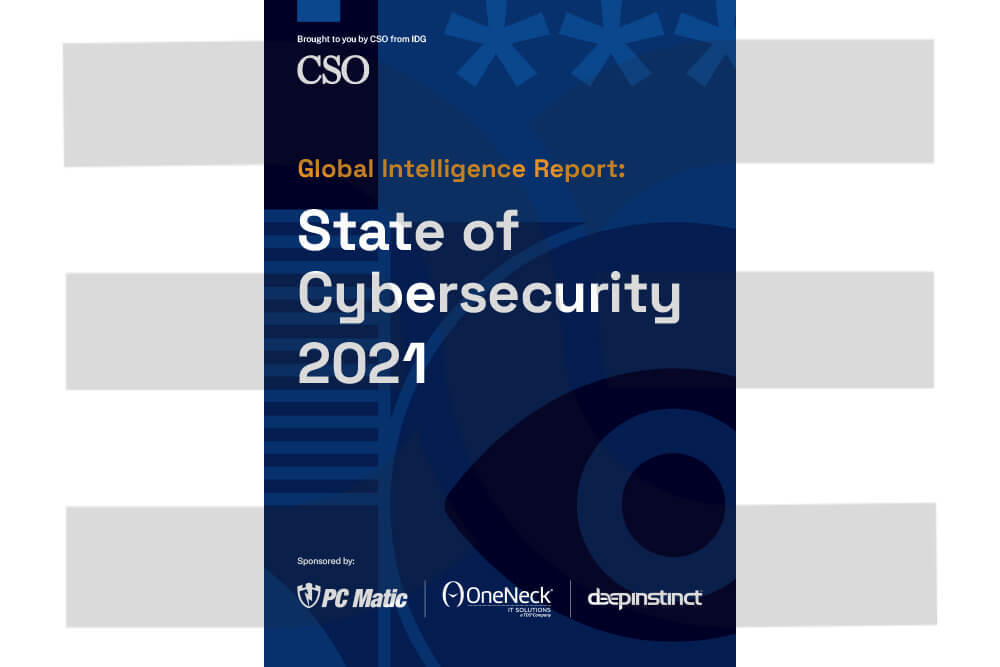Re-Emphasizing Prevention in the Face of Sobering Security Realities
It should come as no surprise that ransomware and the increasing sophistication and frequency of never-before-seen threats is a top concern for cybersecurity leaders. This year has already been marked by a steady stream of highly disruptive attacks. Coupled with our new normal that involves remote work and widely distributed endpoints, cybersecurity professionals have no shortage of risks to assess and mitigate in their short and long-term planning.
These are just a few of the key takeaways from new research presented by CSO in its recently released Global Intelligence Report: The State of Cybersecurity in 2021. This third-party research is based on a survey of 2,741 global security, IT, and business professionals, asking key questions related to their primary threat landscape concerns and how the evolving use of the cloud, artificial intelligence (AI), and zero trust models are being used to strengthen defenses.
79% of respondents described the potential impact from financially motivated cybercrime, including ransomware, as critical or catastrophic.
62% of organizations believe that a financially driven attack such as ransomware is likely over the next 12 months.
One of the biggest takeaways from this year’s report is the sense that cybersecurity has reached a tipping point, where the risks associated with the ever-challenging threat landscape are moving from solely being the purview the security team, along with the broader IT organization, and have now become a key C-suite discussion point, drawing more and more attention from the highest levels of organizational leadership. Cybersecurity budgets are also increasing to meet the increased need for better protection.
71% of organizations expect their security budget to increase this year.
Breaches are so damaging to brand, business continuity, and revenue that business leaders are now beginning to treat their cybersecurity infrastructure with the criticality it has long deserved.
According to the survey, organizations are updating security policies and controls to address remote and hybrid work models, yet key gaps remain.
85% of the survey respondents are making security policy changes to accommodate new work-from-home models, which for many presented a newly increased attack surface.
This is one the reasons why technologies such as Artificial Intelligence (AI) and the solutions that enable zero-trust security models are experiencing rapid uptake. However, lags in emerging technologies are still present in core people and process-focused areas.
These findings echo the trends we have been seeing in the industry for some time and we share in these concerns. Our recent Mid-Year Threat Report shared that new models and attack strategies used by cybercriminals are increasingly lucrative, and the successes criminal gangs are having with high-profile ransomware attacks will only encourage more attacks of similar nature. As much as organizations are adopting new technology to enable productivity, they should also adopt a new security framework. Shifting into a new era of security means restoring faith in true prevention.
The Deep Instinct advantage centers on leveraging a true prevention-first approach to cybersecurity, bringing unparalleled threat prevention to our customers to ensure peace of mind in the current state of cybersecurity.
A copy of the full IDG research study CSO Global Intelligence Report: The State of Cybersecurity in 2021 can be downloaded here.
Survey Methodology
IDG’s Global Intelligence Report on Cybersecurity was conducted to understand cybersecurity risk, challenges, policies, practices, and investments worldwide. Data was collected via a 26-question online survey in May and June 2021. There were 2,741 respondents in IT, security, and line-of-business positions across industries and around the world.

